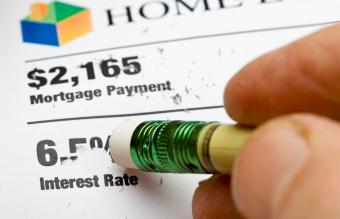
Mortgage background checks can mean different things to different people, depending on the situation. While some people think of mortgage title searches when they think of background checks for mortgages, others think about the process involved with finding out if applicants are eligible for mortgage loans based on their past credit usage. Mortgage professionals may also be subject to background checks for licensing purposes.
Title Searches
Before a mortgage can be issued for a home, the lender must ensure that no other lender or entity has legal rights to the home. Without first conducting a home title search, a person might purchase a home and then later discover that another lender or individual has a lien or other legal right to the home. It does not matter if this lien predates the purchase of the home by the current homeowner, so this can lead to significant legal difficulties if the situation is not discovered prior to the closing of the home loan.
Title searches are not only a good idea, but they are typically required by lenders before a mortgage loan is completed and brought to closing. These background checks on the ownership of the home are beneficial to everyone involved.
Credit Eligibility
Before approving a mortgage loan, applicants must submit to an extensive credit check to make sure that they qualify based on the minimum credit requirements of the lender. This background check typically involves a review of prior credit history, including the length of time the applicant has successfully managed credit accounts as well as the type of accounts the applicant has. Lenders also review income sources, employment history, and any other factors that can affect eligibility for mortgage approval.
Mortgage background checks for borrowers do not involve criminal background checks, but instead are designed to ensure that the information provided by the applicant is accurate and valid. Lenders do not want to approve mortgage applications based solely on the word of the applicants. There must be a demonstrated responsible use of credit and the continued ability to make monthly mortgage payments without winding up financially overextended.
Mortgage lenders are prohibited from taking certain background factors into consideration when deciding whether or not to approve a loan application. Prospective borrowers should never be forced to answer questions about their gender, ethnicity, religious affiliation, or any other personal information. Applicants may be asked demographic information separately from the application for reporting purposes, but this information is voluntary and does not have an impact on the approval or denial of the mortgage application.
Mortgage Background Checks for Mortgage Professionals
In some states, certain mortgage professionals, such as loan originators or brokers, must submit to background checks before they can obtain or renew their professional license. These background checks are designed to make sure that these mortgage professionals have not been convicted of criminal activity involving financial fraud or other felonies. In many instances, background checks revealing any fraudulent activity will make a mortgage professional ineligible to obtain or renew a license, making it illegal to offer their services professionally.
Background checks requirements can vary from one state to another. Here is a brief list of some companies offering background checks for mortgage professionals:
Mortgage professionals are not generally responsible for obtaining their own background checks. Instead, they typically submit their fingerprints or a release form to the agency within their state or county that is responsible for licensing mortgage professionals.







